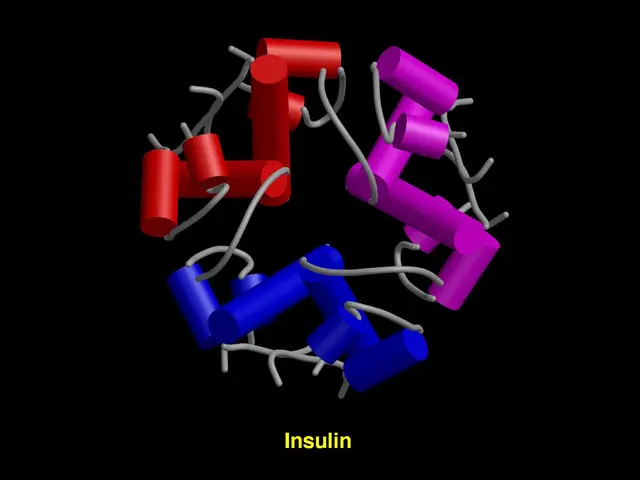Veterinary guide on symptoms, progression, and remedies for pneumonia in dogs
Pneumonia, a common respiratory infection in dogs, can be a serious condition that requires prompt veterinary attention. This article aims to provide a clear understanding of the stages, symptoms, and treatment options for canine pneumonia.
Stages of Pneumonia in Dogs
Pneumonia in dogs typically progresses through four distinct stages:
- Congestion stage: In this early stage, lung blood vessels become congested, and fluid accumulates. Dogs may show mild signs such as lethargy, reduced appetite, and a soft cough.
- Red hepatization stage: As red blood cells leak into the alveoli, the lungs firm up. More obvious respiratory signs develop, including a deeper cough, increased breathing effort, and fever.
- Grey hepatization stage: This peak illness phase is characterised by many white blood cells in the lungs, causing oxygen exchange to be severely impaired. Dogs may become very unwell and may require hospitalization.
- Resolution stage: If treatment is successful, inflammation subsides, and the lungs clear the infection and debris. Recovery begins, though coughing may persist for some time.
Common Symptoms of Pneumonia in Dogs
Dogs with pneumonia may exhibit a range of symptoms, including:
- Persistent or worsening cough (sometimes deep or honking)
- Increased respiratory effort
- Lethargy
- Fever (often over 103°F)
- Reduced appetite
- Nasal discharge that may be yellow or green
- Difficulty breathing or labored respiration
- Bluish gums (in severe cases)
Treatment Options for Pneumonia in Dogs
Treatment options for pneumonia in dogs depend on the severity of the infection. Mild cases may recover with rest and supportive care, while more severe infections may require hospitalization, antibiotics, nebulization and coupage, oxygen therapy, anti-inflammatories (under veterinary guidance), fluid therapy, and close monitoring.
Preventing Pneumonia in Dogs
Preventive measures include maintaining good kennel hygiene to reduce the risk of respiratory infections, especially in dogs housed in kennels or shelters. Dogs with weakened immune systems should be monitored closely for signs of respiratory infections.
Early veterinary diagnosis using physical exams, including lung auscultation, and history is key for effective treatment and better outcomes. More severe or non-improving cases may require further diagnostics and advanced care.
While pneumonia can be a serious condition, with timely and appropriate treatment, many dogs can recover fully. It's essential to seek veterinary advice if your dog shows signs of respiratory infection.
[1] Veterinary Partner [2] PetMD [3] Merck Veterinary Manual [4] AKC
- Pneumonia, a health condition in dogs, can be managed effectively with proper care and medication at the veterinary level.
- A scratching your dog's ear or brushing their fur can help you spot any changes in their behavior that might signal a health issue like pneumonia.
- A well-balanced diet plays a vital role in your pet's overall health-and-wellness, including helping to prevent respiratory infections such as pneumonia.
- Regular veterinary check-ups can help ensure the mental-health and physical health of your pet by detecting any early signs of potential illnesses like pneumonia.
- Responsible pet owners should educate themselves about the warning signs of pneumonia in dogs and seek veterinary assistance promptly to enhance their pet's health and well-being.
- Science has made significant strides in understanding and treating pneumonia in cats and dogs, with the help of ongoing research in the field of veterinary medicine.





